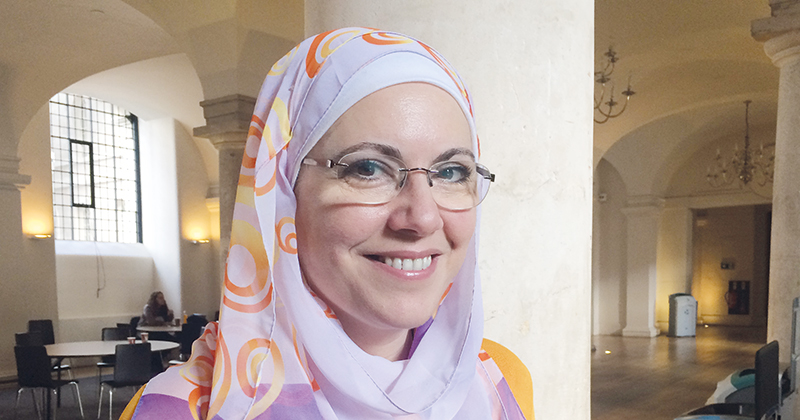As one college principal puts out a call for greater support for practitioner research, moves are afoot to create a “meta network” of FE research organisations to facilitate collaborations on the ground. So what can principals do to support more research – and why does it matter? FE Week takes a look.
Around 30 bodies – including the Learning and Skills Research Network, the National Education Union, the Education and Training Foundation and others – met recently to discuss a “meta network” of FE research organisations.
The idea behind this network is to allow practitioners to share work and collaborate – which, according to Andrew Morris, co-founder of the LSRN, could bring a number of benefits.

He described it as a place where information about research could be brought together, providing “tremendous scope for collective communication of work and of best practice” and “increasing the chances of collaboration” – which in turn could bring in vital funding.
Meanwhile Ali Hadawi, principal of Central Bedfordshire College and the only college representative on the board of the Association for Research into Post-Compulsory Education, has exhorted his peers to “take the initiative and embed research within our colleges”.
In an exclusive piece for FE Week he calls on fellow principals to “actively support college practitioners to engage with local universities”. “Practitioner research”, which involves lecturers testing ways to expand or improve their normal teaching practice, is not widely carried out in FE, according to Ruth Silver, chair of the Further Education Trust for Leadership.
She described this research as “idiosyncratic and individually based” but with the potential to be “amplified geographically”.
“The seeds are there, it just needs a brave gardener to get it going,” she said.

The Education Endowment Foundation, which was set up in 2011 with a £125 million investment from the Department for Education to support research in schools, had its remit expanded in 2016 to include post-16.
It is running three trials on GCSE resits, and also offers funding to FE practitioners – although this is reserved for “high-potential programmes” across “multiple post-16 settings”.
This can make it hard to access, Mr Morris explained. “One of the huge problems with FE research is that it’s so fragmented,” he said. “There are so many small operations going on; that it doesn’t secure big funding from big organisations very easily.”
Two research centres have also been established in recent years, looking specifically at post-16 education and training: the Centre for Vocational Education Research at the London School of Economics, and the Post-14 Education and Work Centre at the University College London Institute of Education, both founded in 2015.
The Further Education Trust for Leadership has been dedicated to developing leadership of thinking in FE since 2013 – which includes funding former Association of Colleges chief executive Martin Doel’s “public policy” FE and skills professorship at UCL IoE.
The most effective way to improve outcomes for your own learners is to spend time getting to know them in a research context
But why should colleges engage more with research?
According to Paul Kessell-Holland, head of partnerships at the Education and Training Foundation, which runs a practitioner programme, research allows colleges to create a “bespoke” solution to tackle their own problems. “The most effective way to improve outcomes for your own learners is to spend time getting to know them in a research context,” he said.
Rania Hafez, co-chair of the London and South-East LSRN, argues that framing practitioner research as a focus on “scholarship” rather than on “more articles in obscure journals” or “quantifiable outcomes” is vital to improving teaching and learning.
Challenging regulators is a primary focus for Mr Hadawi, who wants a research body from the FE sector to have power to “challenge Ofsted or policymakers”. But FE practitioner research faces a number of challenges, including a lack of time and research culture within FE, fragmentation and underfunding.
According to Gary Husband, a former FE lecturer who now works at the University of Stirling and sits on the ARPCE committee, many research grants require a university to be involved, which can make it “very difficult” for FE institutions to get research-specific funding – although some is available through the Education and Training Foundation’s practitioner research programme.
Mr Husband said partnerships between colleges, research organisations and universities, as suggested by Mr Hadawi, would give people in FE the “skills needed to do good quality research”, and mean they could apply for funding.
“All it needs is a few brave individuals to lead the way,” he said.
Education and Training Foundation practitioner research programme

This programme, worth around £250,000 a year, provides funding for FE staff to engage in research that would benefit teaching and learning or management of their institution.
Around 50 places are on offer on two programmes, a one-year course leading to an MA short=-course qualification, and a two-year MPhil qualification.
The funding covers all the costs of the programme, which involves a commitment of around three residential stays of three days each per year.
Paul Kessell-Holland, the ETF’s head of partnerships, acknowledged that there will be some costs to the college in terms of staff time away.
“It works in a similar way to an MBA, where you’re expected to work on your own business, and that’s one of the benefits of letting a member of staff do it,” he explained.
West Yorkshire Colleges Consortium
The consortium was set up as a joint venture company in 2016 by seven colleges: Bradford, Calderdale, Kirklees, Leeds City, Leeds College of Building, Shipley and Wakefield, with the specific remit of bidding for and managing European Social Fund projects.

Rachel Mather, research and development manager for the consortium, said she worked with the different colleges to deliver “skills interventions” that made use of labour market information and social information from organisations such as the Joseph Rowntree Foundation and the Social Mobility Consortium.
This might have meant ensuring that seasonal workers have “the right skills for the requirements of the region where there’s job availability to secure additional employment”, but it also meant looking at “other issues and barriers” for people in “precarious work” such as childcare and other caring responsibilities.
FE Research Meet
Modelled on the more established Teach Meet for school teachers, this aims to bring together people involved in FE research to discuss what they’re doing and to share their findings.
Jo Fletcher-Saxon, an assistant principal at Ashton Sixth Form College, is one of the organisers.
“I see the FE Research Meet model as a move to open up a space for those who work within the sector,” she said.
She wants to give them “the opportunity to undertake some research or practitioner inquiry in their setting to have a place, space, infrastructure and network within which to share those findings”.
The idea is proving popular –bookings for the next event in June 2018 have already exceeded the “20 or so” she’d expected. Proposed topics for discussion include the use of technology by recently trained FE teachers, and online teacher learning communities.
@JFletcherSaxon #FEResearchMeet
Learning and Skills Research Network
This entirely volunteer-run network is the granddad of FE research networks, having been around since 1997, despite receiving no funding.
The network runs two national workshops a year, one in the spring and one in the autumn, and also has a number of regional groups.
The spring meeting focuses on a policy-related issue, while the autumn one looks at “different aspects of practitioner research – universals rather than specifics”, according to Andrew Morris, the network’s co-founder.
These include “how to make your research have impact and how colleges cultivate a culture of research”.
Examples of research carried out by LSRN members include using data to measure the effectiveness of different teaching and learning strategies.
Mr Morris said there are “a few hundred” people involved with the network either through its meeting or its termly newsletter, though this is growing, with two new regional groups being set up this year.
An Interview with Rania Hafez

There’s a simple way Ofsted could boost colleges’ engagement with research, according to the co-chair of the London and south-east Learning and Skills Research Network, and that is by including it as a measure of good management.
“I would like more principals to reach out by allowing scholarship spaces for their staff,” explains Rania Hafez.
“Ofsted just needs to make it a requirement of management to be truly supportive of scholarship.”
I meet Hafez in a vaulted hall at the former Royal Naval College occupied by the University of Greenwich, where she is programme leader for the MA in education. She considers herself one of several “stowaways” in higher education – academics based in HE institutions, who are actually “FE, heart and soul”.
She has also been a visiting research fellow at the University of Derby for six years, and insists that “research should not just be about more articles in obscure journals that no one is going to read”. In fact, she considers “research” almost the wrong word – preferring “inquiry” or “scholarship”.
While “quantifiable outcomes” have their place, she says, “you don’t fatten a pig by weighing it”.
We too often treat research like a science project
A former FE lecturer and manager, she waxes lyrical about the “wonderful things happening in the classroom every day” but argues that teachers need more time to read and debate: “I would like to see libraries full of books, not only for students, but for lecturers.”
She expands on the theme: “We too often treat research like a science project. We think that if we keep researching, we’re eventually going to discover the new penicillin. But teachers as experts is one area that we’re not really valuing.”
Passionate about the need for reflection to inform practice, Hafez is adamant colleges can facilitate this at minimal cost.
FE institutions could, for example, “create spaces – both in time and place – to develop communities of practice”.
“Lunchtime discussions can be a collegiate, safe place to discuss what is and isn’t working in the classroom, and share ideas,” she suggests.
“If research isn’t informed by proper intellectual inquiry, it will just be weighing the pig.”








Your thoughts